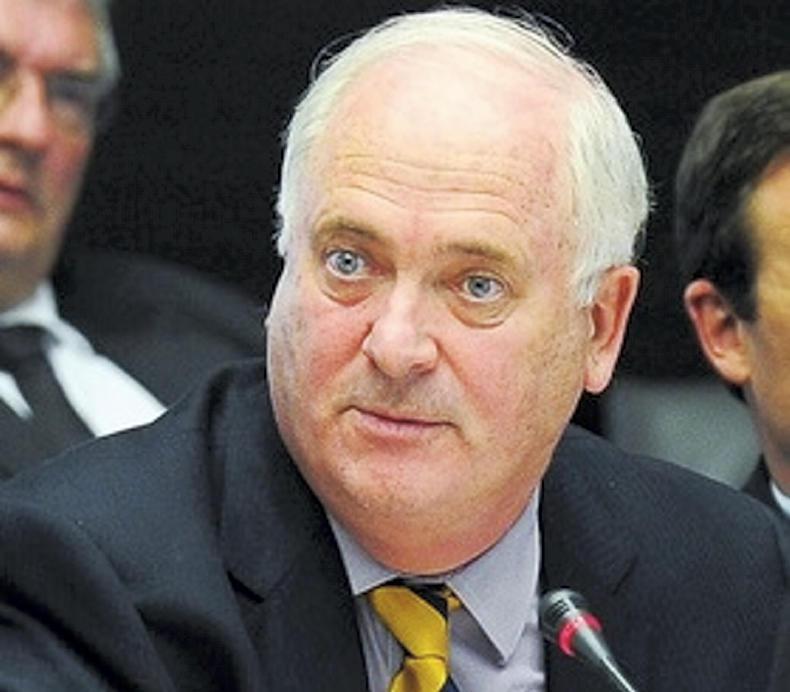The British foreign secretary Liz Truss is holding a two-day meeting with the European Commission vice president, Maroš Šefcovic, in an attempt to break the deadlock on the Northern Ireland Protocol.
The fact that the negotiations are being handled on the UK side by the foreign secretary, one of the most senior and longest serving ministers in the UK government and an elected politician, is also a good sign.
She has a degree of political authority independently of the prime minister and thus has scope to make moves that her predecessor, Lord Frost, could never have made.
On the other hand, there is no sign that she has been preparing the ground for a deal.
The expectation is the Conservative grassroots remain unrealistic and Liz Truss has stoked these expectations in an article she wrote in The Sunday Telegraph. She said: “We need to end the role of the European Court of Justice (ECJ) as the final arbiter of disputes” between the EU and the UK on the interpretation of the protocol.
Nobody is suggesting that the ECJ will arbitrate a dispute between the UK and the EU
Her language may be deliberately loose here.
Nobody is suggesting that the ECJ will arbitrate a dispute between the UK and the EU.
But the EU side will have to act, in any agreements it makes with the UK, in accordance with EU law and the ECJ has to have the final word in interpreting the meaning of the EU laws, that will apply in Northern Ireland, under the protocol that Boris Johnson and the UK Parliament signed up to.
This failure to manage expectations could lead to deep disappointments and a major crisis
Her article was all about what the UK needed and she made no attempt to explain, to the Tory-supporting readers of The Sunday Telegraph, that the EU is a system of rules and these rules have to be interpreted consistently in all parts of Europe, including in regard to goods in Northern Ireland. This failure to manage expectations could lead to deep disappointments and a major crisis.
Forced to choose
Writing in The Irish Times last week, Prof Ronan McCrea, an Irish academic based in London, speculated that, if a compromise was not reached in the discussions between the EU and the UK, this State might be forced to choose between imposing customs controls on the land border in Ireland, or ceasing to be fully part of the EU single market.
He did not see this arising simply from the UK invoking Article 16 of the protocol, if that is all they do. This is because safeguard measures that the UK might take under Article 16 must be “restricted with regard to their scope and duration to what is strictly necessary in order to remedy the situation”.
That is what the UK signed up to, so it could not walk away completely from the controls required under the protocol, on imports from Britain to Northern Ireland, relying on Article 16. Anything they could do under Article 16 would have to be temporary.
Bigger threat
Prof McCrea saw a bigger threat would arise if, rather than invoking Article 16, the UK just stopped implementing any controls at all, on goods entering Northern Ireland from Britain. This, he argued, would mean, if the land border remained open, that exports?from the Republic of Ireland (ROI) to the rest of the EU could no longer be relied upon to be compatible with EU rules on quality, safety and rules of origin.
This would be the nightmare scenario for Ireland
One possibility is that, to avoid this, customs checks on goods coming from the ROI might have to be introduced at ports in France, Belgium and the Netherlands on all goods coming from Ireland.
This would be the nightmare scenario for Ireland, because it would place a question mark over our EU membership and its economic future, particularly its status as a desirable location for foreign investment.
On the other hand, the EU could not tolerate a non-EU state, Britain, undermining the EU membership of an EU state. The trade sanctions the EU would take against the UK, to avoid this, would be exceptionally severe. I think the UK realises this and I hope we will see a compromise reached in the coming weeks. There is a lot at stake here.






 This is a subscriber-only article
This is a subscriber-only article











SHARING OPTIONS: